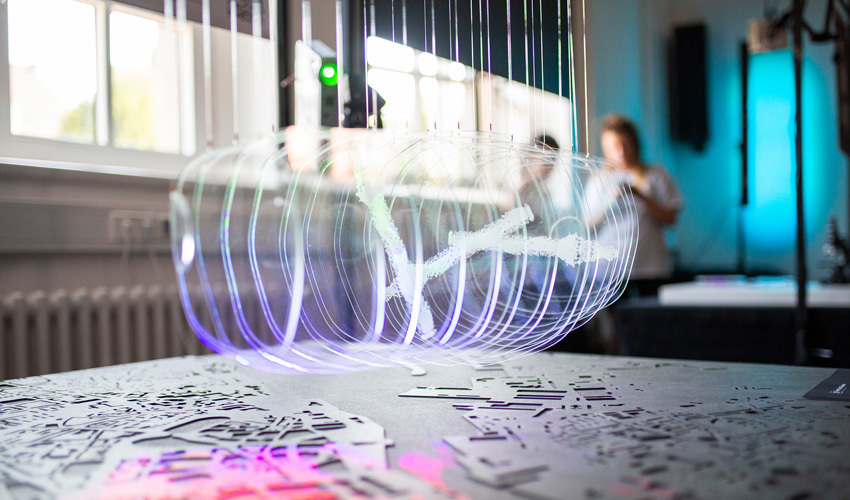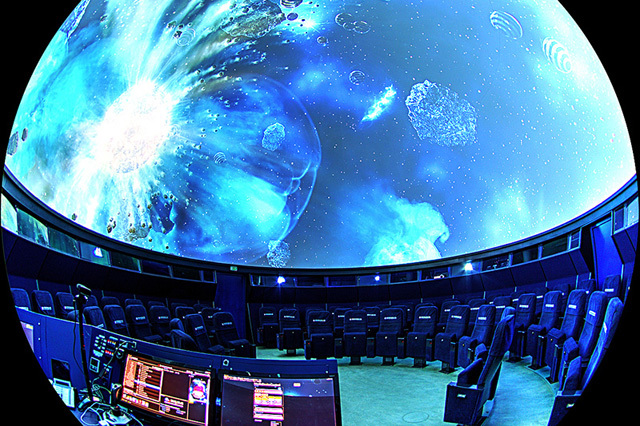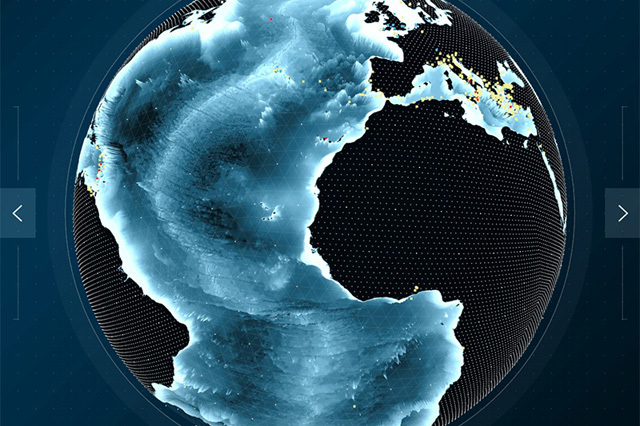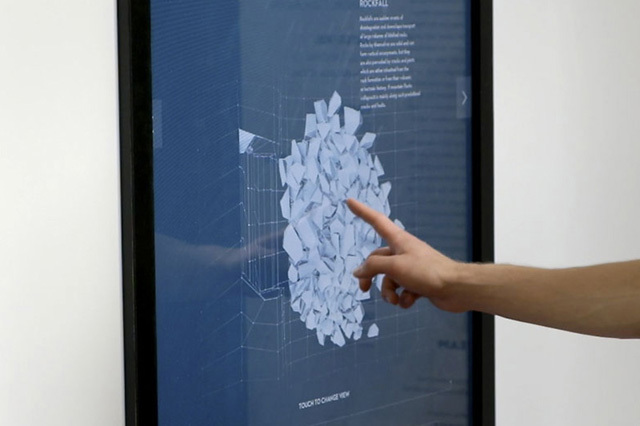Science communication
How can we use new digital media technologies to pass on knowledge? The Mediendom Kiel shows us how: it takes visitors into a virtual reality, gives children and adults alike a sensory learning experience and insights into scientific contexts.
But Kiel also boasts many other examples of successful science communication using innovative media technology - much of which is award winning.
Researchers from Kiel University (CAU), the Muthesius University of Fine Arts and Design and the Leibniz Institute for Science and Mathematics Education (IPN) work in the laboratories and knowledge centres of tomorrow, and develop solutions for all kinds of areas.

The Wissenschaftszentrum Kiel (Science Centre) is a joint institution of Kiel University and the City of Kiel and forms the heart of the Science Park. As an innovation driver, it promotes project-oriented work in cooperations and networks. Here, companies and organisations take advantage of the opportunity to exchange ideas and work together in around 2,500 square metres of office space. Key topics include mobility, nutrition, health, energy, AI and digitalisation.
The Wissenschaftszentrum establishes contacts between companies, selected experts and universities in the region, so that ideas and innovations can be turned into specific projects. It acts as a partner of politics, industry and science and delivers valuable public relations work, which ultimately benefits all companies situated at this excellent location.
Making scientific findings understandable and impactful for the broader public – this is the goal of the new centre for science communication research in Kiel, the Kiel Science Communication Network (KielSCN). The interdisciplinary association commenced its work in December 2021. Researchers from the fields of specific academic subjects, information design and educational sciences want to jointly develop a nationally and internationally visible centre for research-based visual science communication.
Their focus is on topics from the life sciences and medicine. Drawing on expertise from media and information design as well as scientific communication research, the specialist content is to be transformed into new information visualisations. The Kiel Science Communication Network has secured funding until the end of 2026, as one of four consortia throughout Germany, through the funding line "Science Communication Cubed – Centres for Science Communication Research".
Scientists from Kiel University (CAU), the Leibniz Institute for Science and Mathematics Education (IPN) and the Muthesius University of Fine Arts and Design are involved. Media partners from the field are Norddeutsche Rundfunk, the journal Spektrum der Wissenschaft and the video channel Kurzgesagt as well as the non-profit organisation opencampus. In addition, research fellows and internationally renowned experts in science communication support the network.
The Mediendom digital theatre in Kiel lets visitors to its theatre dome dive into new worlds and presents its current lab research extremely effectively: by using multi-media 3D virtual reality effects with 360° projections. Productions from Kiel have earned international prizes.
The Mediendom is a facility of the Zentrum für Kultur- und Wissenschaftskommunikation (ZKW, Centre for Cultural and Science Communication) at Kiel University of Applied Sciences (FH Kiel).
The Zentrum für Kultur- und Wissenschaftskommunikation (ZKW, Centre for Cultural and Science Communication) has taken on the task of carrying out application-oriented investigation into immersive media. Immersion describes the principle of blurring the borders between reality and the virtual world, between man and medium.
The ZKW works closely together with the Media Department at Kiel University of Applied Sciences. This department has also developed priority research areas in this field and combined these in the Institut für immersive Medien (ifm, Institute for Immersive Media).
The Institut für immersive Medien (ifm, Institute for Immersive Media) is dedicated to researching innovative media technologies. The central location for this is the Interdisciplinary Lab for Immersion Research (LINK). It is one of the best equipped VR/AR labs at a German university. In addition to developing augmented and virtual reality experiences, the transfer to industry also plays a role.
Students and lecturers from the Media Department and the Computer Science and Electrical Engineering Department work together at the LINK. The goal of the activities at the ifm and the LINK includes observing and analysing current media trends. Changes in use, reception and impact of the media are of particular interest.
The Muthesius University of Fine Arts and Design also supports science in transferring research findings to a broad audience. The work by the Centre for Media, an interdisciplinary institution of the Muthesius University of Fine Arts and Design, resulted in the formation of the Wissenschaftsvisualisierung (Science Visualisation) priority research area.
A special feature of this is the Muthesius University’s involvement in Kiel’s Clusters of Excellence. For example, it developed a visual language and communication form for the Cluster of Excellence "Inflammation at Interfaces", and for the Cluster of Excellence "Future Ocean" it developed projects such as the "Next Generation Interactive Scientific Poster", an interactive touchscreen. This received the Red Dot Design Award "Best of the Best" in 2014.
The company Science Communication Lab, which was founded by the poster developers, received two further awards for this successful innovation: the German Design Award 2016 and the Kiel Innovation Prize 2017.
Pushing research more strongly into public focus is also a goal of the Kiel Science Outreach Campus (KiSOC). KiSOC wants to show how scientific findings can be transferred in a contemporary and easy-to-understand way and in doing so, interest more young talents in studying the MINT subjects (mathematics, IT, natural sciences and technology).
The IPN works on the project together with Kiel University of Applied Sciences (FH Kiel) as well as other partners from different countries.
INTERDISCIPLINARY INSTITUTES
- Wissenschaftszentrum Kiel (German)
- Kiel Science Communication Network (KielSCN)
- Mediendom Kiel (German)
- Interdisciplinary Lab for Immersion Research (German)
- Centre for Media at the Muthesius University of Fine Arts and Design (German)
- Science Communication Lab (SCICOMLAB)
- Kiel Science Outreach Campus (German)





